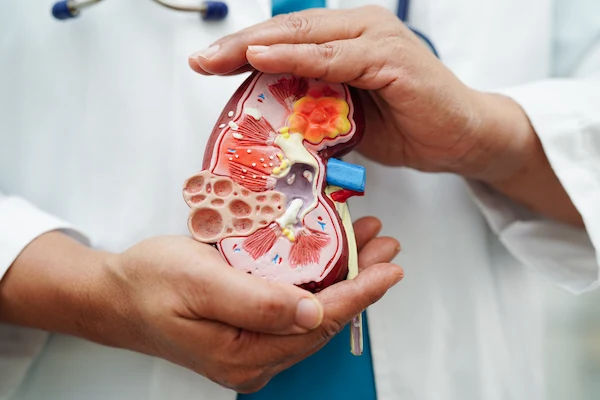Guide to Diet And Kidney Stones
Learn how diet impacts kidney stone formation. Discover hydration tips, nutrient strategies, and foods to eat or avoid for effective prevention.

Written by Dr. Rohinipriyanka Pondugula
Reviewed by Dr. Shaik Abdul Kalam MD (Physician)
Last updated on 13th Jan, 2026

Introduction
If you've ever experienced the excruciating pain of a kidney stone, you're not alone—and you'll likely do anything to prevent a recurrence. While genetics and other factors play a role, your diet is one of the most powerful tools you have to influence your risk. Kidney stones form when certain minerals in your urine become highly concentrated, crystallising into hard deposits. What you eat and drink directly affects the composition of your urine, either promoting or preventing this process. This comprehensive guide will demystify the relationship between your diet and kidney stones, moving beyond simplistic "avoid this" lists to provide a nuanced, actionable strategy. We'll explore the science of hydration, unravel the oxalate myth, and show you how to build a sustainable, stone-preventing eating plan. Let's transform your diet from a potential cause into your strongest defense.
What Are Kidney Stones and How Does Diet Affect Them?
Kidney stones are hard, pebble-like deposits that form in one or both of your kidneys. They can be as small as a grain of sand or as large as a pea; some even grow to the size of a golf ball. The pain, often described as worse than childbirth, typically occurs when a stone moves from the kidney into the ureter (the tube connecting the kidney to the bladder), causing a blockage.
The Formation Process: From Crystals to Stones
The process begins when your urine contains more crystal-forming substances—such as calcium, oxalate, and uric acid—than the fluid in your urine can dilute. At the same time, your urine may lack substances that prevent crystals from sticking together, creating an ideal environment for stones to form. Diet influences both the concentration of these minerals and the presence of these protective inhibitors.
Not All Stones Are Created Equal: Common Types
Knowing the type of stone you had is crucial for tailoring your diet. The most common types include:
- Calcium oxalate stones: The most prevalent type, formed from calcium and oxalate.
- Uric acid stones: Form when urine is persistently acidic, often linked to a high intake of animal protein.
- Struvite stones: Often formed in response to an infection.
- Cystine stones: Due to a hereditary disorder that causes the kidneys to excrete too much of a specific amino acid.
This article primarily focuses on preventing calcium oxalate and uric acid stones, as they are most influenced by diet and nutrition.
Consult a Urologist or Dietitian for the best advice
The Golden Rule: Hydration is Your Best Defense
This is the single most important piece of dietary advice for preventing kidney stones. Adequate fluids dilute the substances in urine that lead to stones. Think of it like adding more water to a concentrated sugar solution; the sugar particles are less likely to clump together.
How Much Water Should You Really Drink?
The standard advice is to drink enough fluid to produce at least 2 to 2.5 liters of urine per day. For most people, this translates to drinking roughly 8-10 standard 8-ounce glasses of fluid daily. However, a better indicator is the color of your urine—aim for light yellow or clear. If you live in a hot climate or exercise frequently, you'll need significantly more.
Beyond Water: Other Beneficial Fluids
While water is best, other fluids count too. Lemon water and lime water are particularly beneficial. They contain citrate, which naturally inhibits the formation of calcium stones. Try squeezing fresh lemon juice into your water throughout the day. Conversely, it's wise to limit sugar-sweetened sodas and drinks high in fructose corn syrup, as some studies link them to a higher risk of stone formation.
Navigating the Oxalate Controversy
Oxalate is a natural compound found in many plants. If you've had a calcium oxalate stone, you may have been told to avoid high-oxalate foods. However, this approach is now considered outdated and overly restrictive.
High-Oxalate Foods to Be Mindful Of
It's still prudent to be aware of very high-oxalate foods and not consume them in enormous quantities regularly. These include:
- Spinach
- Rhubarb
- Almonds and cashews
- Miso soup
- Bran cereals
- Beets
- Swiss chard
The Calcium Connection: Why You Shouldn't Avoid Dairy
Here’s the critical insight most people miss: A low-calcium diet can actually increase your risk of kidney stones. This is because calcium binds to oxalate in your digestive tract before it reaches your kidneys. Without enough dietary calcium, oxalate is free to be absorbed into your bloodstream and eventually excreted into your urine, where it can form stones. The goal is to get enough calcium from food (like yoghurt, milk, and cheese) and to consume it with meals that contain oxalate. This allows the binding to happen in the gut, not the kidney.
The Hidden Enemy: Sodium's Role in Stone Formation
A high-sodium diet is a major risk factor for calcium-based stones. When you eat too much salt (sodium chloride), your kidneys excrete more calcium into your urine. This high concentration of calcium in the urine (hypercalciuria) is a primary driver of stone formation.
Identifying Sneaky Sources of Sodium
It's not just the salt shaker. Processed foods, canned soups, packaged snacks, lunch meats, and fast food are loaded with sodium. Start reading nutrition labels and aim to keep your total sodium intake below 2,300 mg per day, as recommended by most health guidelines for stone formers.
Animal Protein and Uric Acid Stones
Diets high in animal protein (red meat, poultry, eggs, and seafood) can increase the risk of stones in two ways:
- They can increase uric acid excretion, which can lead to uric acid stones.
- They can reduce levels of urinary citrate, a chemical that prevents stones from forming.
Balancing Protein Intake for Kidney Health
This doesn't mean you need to become a vegetarian, but moderation is key. Consider adopting a "flexitarian" approach, where you replace some animal protein meals with plant-based alternatives like lentils, beans, and tofu. If your kidney stone pain has been linked to uric acid, your doctor may recommend a more significant reduction.
Putting It All Together: Building a Kidney-Stone-Friendly Diet
A sustainable approach is better than a restrictive one. Focus on what you can eat to build a healthy, balanced plate.
A Sample One-Day Meal Plan
Here’s an example of a day’s meals designed to support kidney health and prevent stones:
- Breakfast: A bowl of low-sugar Greek yoghurt (calcium) with fresh blueberries and low-fibre cereal (low in oxalate). A glass of water with lemon.
- Lunch: A large salad with grilled chicken (moderate portion), mixed greens (low oxalate), cucumbers, and a lemon vinaigrette. Include a slice of whole-grain bread.
- Dinner: Baked salmon (omega-3s are anti-inflammatory), a serving of quinoa, and roasted cauliflower and carrots.
- Snacks: An apple with a slice of cheese (calcium with a fruit), or a handful of peanuts (lower oxalate than almonds).
Conclusion
Managing your diet to prevent kidney stones doesn't require a list of forbidden foods. Instead, it's about strategic balance and understanding how nutrients interact within your body. By prioritising relentless hydration, combining calcium with oxalate-rich foods, drastically reducing sodium, and moderating animal protein, you can significantly alter the chemistry of your urine to make it far less hospitable to stones. This approach is not a short-term fix but a lifelong strategy for better kidney health and overall well-being. Remember, knowledge is power, but personalised advice is key. If your condition does not improve after trying these methods, or if you experience severe pain, book a physical visit to a urologist with Apollo24|7 for comprehensive evaluation and treatment. Take control of your diet today to prevent the pain of tomorrow.
Consult a Urologist or Dietitian for the best advice
Consult a Urologist or Dietitian for the best advice

Dr. Sudhakar G V
Urologist
25 Years • MBBS, MS(Gen.Surgery), DNB Urology
Bengaluru
Apollo Clinic, JP nagar, Bengaluru

Dr. Prabir Basu
Urologist
19 Years • MBBS, MS General Surgery, DNB Genito-Urinary Surgery
Jodhpur Park
Dr. Prabir Basu urology clinic, Jodhpur Park
(200+ Patients)

Dr Anupam Sharma
Urologist
18 Years • MBBS, MS(Gen Surgery), DNB (Urology)
Delhi
Apollo Hospitals Indraprastha, Delhi
(25+ Patients)

Dr. Samiran Das Adhikary
Urologist
26 Years • MBBS; MS(General Surgery); Mch(Urology). Senior Consultant - Urology & Renal Transplant Surgery
Bhubaneswar
Apollo Hospitals Old Sainik School Road, Bhubaneswar
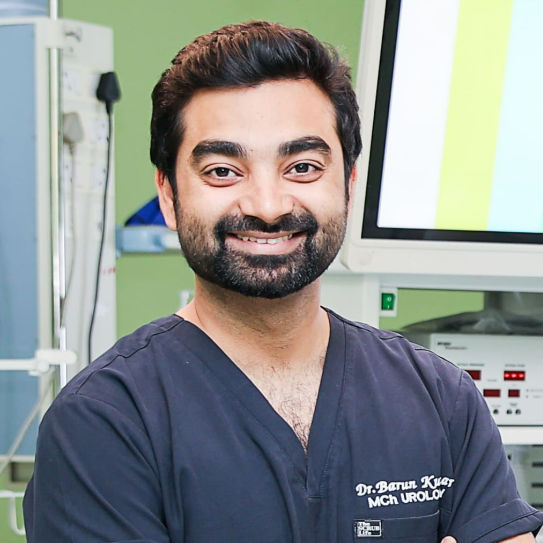
Dr. Barun Kumar
Urologist
12 Years • MBBS MS MCH UROLOGY DNB GENITOURINARY SURGERY
Guwahati
Apollo Clinic Guwahati, Guwahati
Consult a Urologist or Dietitian for the best advice

Dr. Sudhakar G V
Urologist
25 Years • MBBS, MS(Gen.Surgery), DNB Urology
Bengaluru
Apollo Clinic, JP nagar, Bengaluru

Dr. Prabir Basu
Urologist
19 Years • MBBS, MS General Surgery, DNB Genito-Urinary Surgery
Jodhpur Park
Dr. Prabir Basu urology clinic, Jodhpur Park
(200+ Patients)

Dr Anupam Sharma
Urologist
18 Years • MBBS, MS(Gen Surgery), DNB (Urology)
Delhi
Apollo Hospitals Indraprastha, Delhi
(25+ Patients)

Dr. Samiran Das Adhikary
Urologist
26 Years • MBBS; MS(General Surgery); Mch(Urology). Senior Consultant - Urology & Renal Transplant Surgery
Bhubaneswar
Apollo Hospitals Old Sainik School Road, Bhubaneswar

Dr. Barun Kumar
Urologist
12 Years • MBBS MS MCH UROLOGY DNB GENITOURINARY SURGERY
Guwahati
Apollo Clinic Guwahati, Guwahati
More articles from Kidney stones
Frequently Asked Questions
1. Can I drink coffee if I have kidney stones?
Yes, in moderation. Coffee (both caffeinated and decaf) can actually increase urine flow, which helps dilute stone-forming minerals. However, avoid loading it with sugar.
2. Is carbonated water (seltzer) bad for kidney stones?
Plain carbonated water is perfectly fine and contributes to your fluid intake. However, avoid sugary sodas like cola, which have been linked to a higher risk of stone formation.
3. What is the best thing to drink if I feel a kidney stone coming?
Water is essential. However, sipping on a sugar-free lemonade or water with fresh lemon juice squeezed in is highly recommended. The citrate can help slow the growth of stones and may prevent new ones from forming.
4. Are tomatoes bad for kidney stones?
Tomatoes do contain moderate amounts of oxalate. You don't need to avoid them completely, but be mindful of portion sizes, especially if you're eating tomato paste, puree, or sauce in large quantities. Pairing them with a calcium-containing food (like a cheese sauce) can help mitigate the risk.
5. What is the role of a 24-hour urine test?
This test is the gold standard for understanding why you form stones. It analyses your urine over a full day to measure volume, pH, and levels of stone-forming minerals and inhibitors. Apollo24|7 offers convenient home collection for tests like the 24-hour urine analysis, making it easier to get the detailed information needed for a targeted diet and nutrition plan.
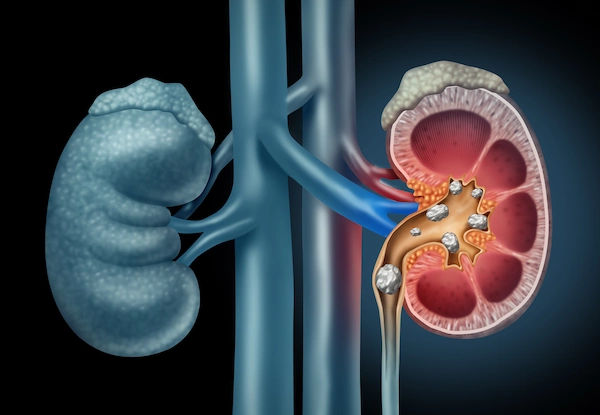
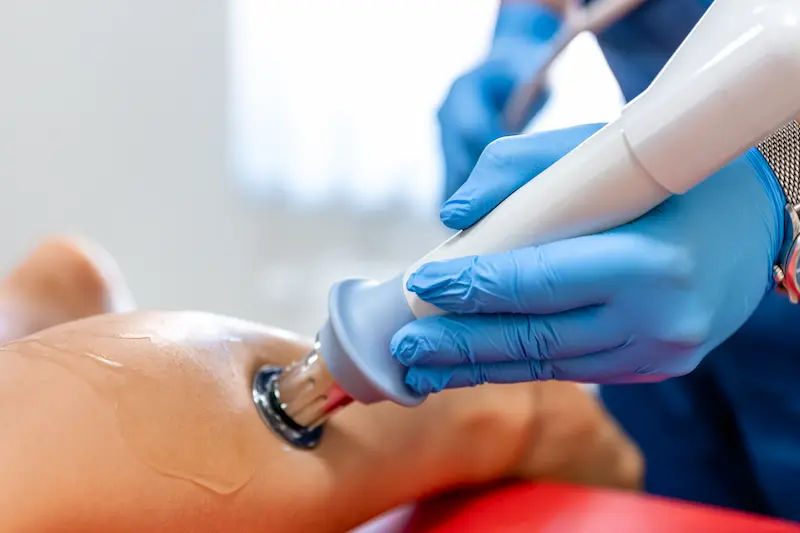
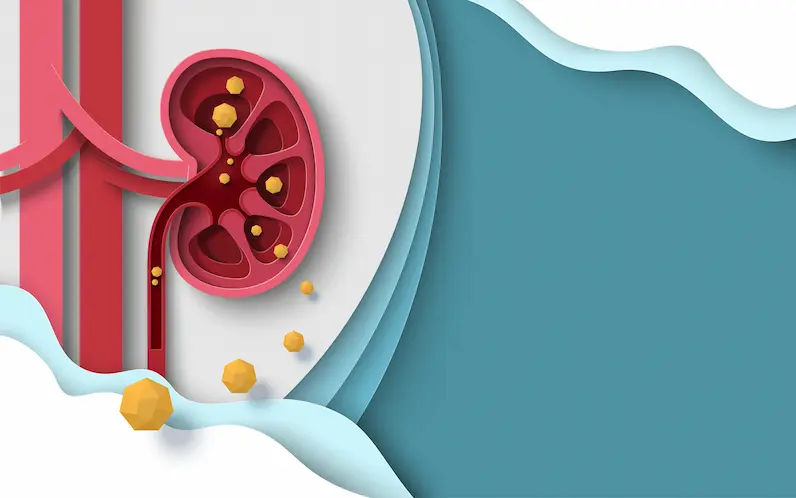
.webp)
